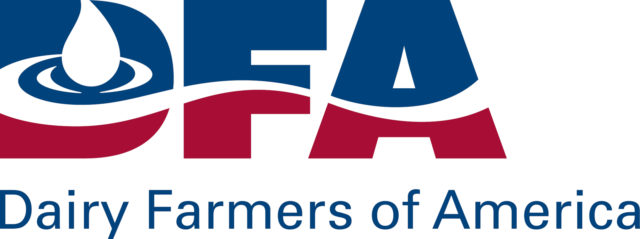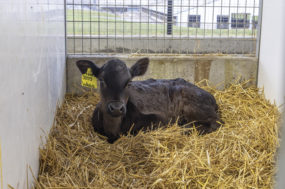- Coca-Cola acquires remaining stake in fairlife LLC
- December Class III price slips; annual average up $2.34
- Dairy margins end December stronger
- Dairy Council of California launching YouTube nutrition education video series
- Researchers: Consuming whole milk may reduce childhood obesity
- New York: Court temporarily blocks farm worker law
Coca-Cola acquires remaining stake in fairlife LLC
The Coca-Cola Company has acquired the remaining stake in fairlife LLC from its joint venture partner Select Milk Producers. Coca-Cola now owns 100% of fairlife, up from its previous 42.5% minority stake. Financial terms of the transaction were not disclosed.
Fairlife LLC, which launched in 2012, started with a high-protein milkshake called Core Power and has grown to offer a broad portfolio of products in the fast-growing value-added dairy category in North America. Fairlife ultrafiltered milk debuted in 2014, and sales have shown double-digit growth each year since. According to Nielsen AMC, fairlife surpassed $500 million in retail sales last year. New product innovation has ranged from lactose-free, ultrafiltered milk to high-protein recovery and nutrition shakes and drinkable snacks.
The brand also has been supported by the reach of Coca-Cola’s U.S. system, with products distributed both through the Minute Maid distribution system, as well as by Coca-Cola bottlers across the country. Fairlife will continue to operate as a stand-alone business based in Chicago.
In 2018, fairlife also launched in Canada and will begin local production and sourcing in Ontario in spring 2020. Fairlife is also continuing to expand production capabilty in the U.S. by complementing production in Coopersville, Michigan and Waco, Texas, with a new facility under construction in Goodyear, Arizona.
Read a Q&A with Coca-Cola North America President Jim Dinkins and fairlife CEO Tim Doelman here.
December Class III price slips; annual average up $2.34
Softening cheese prices pulled back the Federal Milk Marketing Order (FMMO) Class III milk price from its 60-month high in November. At $19.37 per hundredweight (cwt), the December 2019 price was down $1.08 but was still $5.59 more than December 2018.
The December 2019 Class IV milk price increased 10 cents from November to $16.70 per cwt and was $1.61 more than December 2018.
With December’s prices, the 2019 Class III averaged $16.96 per cwt, up $2.34 from the year before and the highest annual average since 2014. The high for the year was $20.45 per cwt in November; the low was $13.89 per cwt in February.
The 2019 Class IV milk price averaged $16.30 per cwt, up $2.07 from 2018 and also the highest since 2014. The high for the year was $16.90 per cwt in July; the low was $15.48 per cwt in January.
Dairy margins end December stronger
After starting the month weaker, dairy margins improved over the second half of December as milk prices recovered from a midmonth swoon, and feed costs held mostly steady in year-end trading.
Margins remain strong, above the 90th percentile of historical profitability through the first half of 2020 and over the 80th percentile of the past decade in the back half of the year, according to Commodity & Ingredient Hedging LLC.
The USDA will release December 2019 milk production estimates on Jan. 23. Through November, year-to-date milk output was up 0.3% from the prior year, with much of the slowdown occurring in the second half of 2019.
In the European Union, milk collections from January through October were up only 0.4% from 2018, while New Zealand milk production lagged the prior year by 0.5%. Drought in Australia also sharply reduced milk output to its lowest level in decades.
Dairy Council of California launching YouTube nutrition education video series
The Dairy Council of California is launching a nutrition education video series on YouTube, Jan. 8. Aimed at education, food service and health professionals, Ask a Nutritionist is a free, educational resource intended to spark dialogue around nutrition while addressing common questions and myths related to milk and dairy foods, healthy eating patterns, dietary trends and the importance of consuming a balanced, sustainable diet.
Each Ask a Nutritionist episode will feature a guest registered dietitian nutritionist who will address a food or nutrition concern specific to their professional expertise and interests.
Researchers: Consuming whole milk may reduce childhood obesity
Children who drank whole milk were less likely to be overweight or obese, according to researchers with St. Michael's Hospital of Unity Health Toronto.
The research, published in The American Journal of Clinical Nutrition, analyzed studies exploring the relationship between children drinking cow's milk and the risk of being overweight. Eighteen of 28 studies analyzed suggested children who drank whole milk were less likely to be overweight or obese. A summary of the research was reported in Newsweek.
New York: Court temporarily blocks farm worker law
A federal judge has temporarily blocked part of a New York labor law expanding the rights of farm workers.
U.S. District Court Judge Lawrence Vilardo issued a temporary restraining order, blocking the state from enforcing some provisions of the Farm Laborers Fair Labor Practices Act until the next scheduled court hearing, Jan. 24. The Northeast Dairy Producers Association and the New York State Vegetable Growers Association had filed the lawsuit in the Western District of New York.
Among other provisions, the law, approved last June and scheduled to take effect on Jan. 1, gives farm workers the right to unionize and receive overtime pay as well as the guarantee of at least one day off per week. ![]()

-
Dave Natzke
- Editor
- Progressive Dairy
- Email Dave Natzke






